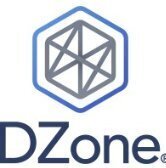Search the Community
Showing results for tags 'prefect'.
-
Data Engineering Tools in 2024 The data engineering landscape in 2024 is bustling with innovative tools and evolving trends. Here’s an updated perspective on some of the key players and how they can empower your data pipelines: Data Integration: Informatica Cloud: Still a leader for advanced data quality and governance, with enhanced cloud-native capabilities. MuleSoft Anypoint Platform: Continues to shine in building API-based integrations, now with deeper cloud support and security features. Fivetran: Expands its automated data pipeline creation with pre-built connectors and advanced transformations. Hevo Data: Remains a strong contender for ease of use and affordability, now offering serverless options for scalability. Data Warehousing: Snowflake: Maintains its edge in cloud-based warehousing, with improved performance and broader integrations for analytics. Google BigQuery: Offers even more cost-effective options for variable workloads, while deepening its integration with other Google Cloud services. Amazon Redshift: Continues to be a powerful choice for AWS environments, now with increased focus on security and data governance. Microsoft Azure Synapse Analytics: Further integrates its data warehousing, lake, and analytics capabilities, providing a unified platform for diverse data needs. Data Processing and Orchestration: Apache Spark: Remains the reigning champion for large-scale data processing, now with enhanced performance optimizations and broader ecosystem support. Apache Airflow: Maintains its popularity for workflow orchestration, with improved scalability and user-friendliness. Databricks: Expands its cloud-based platform for Spark with advanced features like AI integration and real-time streaming. AWS Glue: Simplifies data processing and ETL within the AWS ecosystem, now with serverless options for cost efficiency. Emerging Trends: GitOps: Gaining traction for managing data pipelines with version control and collaboration, ensuring consistency and traceability. AI and Machine Learning: Increasingly integrated into data engineering tools for automation, anomaly detection, and data quality improvement. Serverless Data Processing: Offering cost-effective and scalable options for event-driven and real-time data processing. Choosing the right tools: With this diverse landscape, selecting the right tools depends on your specific needs. Consider factors like: Data volume and complexity: Match tool capabilities to your data size and structure. Cloud vs. on-premises: Choose based on your infrastructure preferences and security requirements. Budget: Evaluate pricing models and potential costs associated with each tool. Integration needs: Ensure seamless compatibility with your existing data sources and BI tools. Skillset: Consider the technical expertise required for each tool and available support resources. By carefully evaluating your needs and exploring the strengths and limitations of these top contenders, you’ll be well-equipped to choose the data engineering tools that empower your organization to unlock valuable insights from your data in 2024. The post Data Engineering Tools in 2024 appeared first on DevOpsSchool.com. View the full article
-
- 1
-

-
- snowflake
- databricks
- (and 9 more)
-
This article delves into the integration of Airbyte with some of the most popular data orchestrators in the industry – Apache Airflow, Dagster, and Prefect. We'll not only guide you through the process of integrating Airbyte with these orchestrators but also provide a comparative insight into how each one can uniquely enhance your data workflows. We also provide links to working code examples for each of these integrations. These resources are designed for quick deployment, allowing you to seamlessly integrate Airbyte with your orchestrator of choice. View the full article
-
- apache airflow
- airbyte
-
(and 2 more)
Tagged with:
-
Forum Statistics
73.8k
Total Topics71.7k
Total Posts
.png.6dd3056f38e93712a18d153891e8e0fc.png.1dbd1e5f05de09e66333e631e3342b83.png.933f4dc78ef5a5d2971934bd41ead8a1.png)

